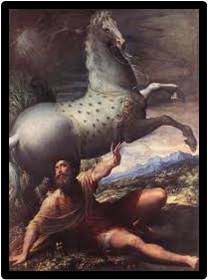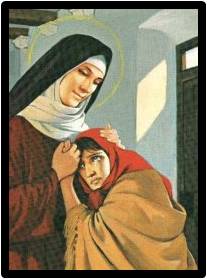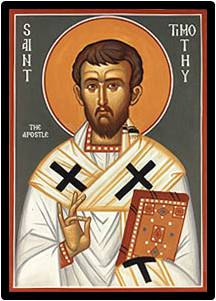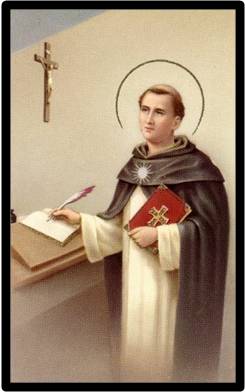
Paul was born at Tarsus in Cilicia (Turkey) lived around the time of Jesus but never met Him. Paul was first called Saul. As a young man, he was a very bright student of the Hebrew religion. He was a Pharisee and a tent-maker by trade.
He hated the Christians. When he grew older he tortured and harassed the followers of Jesus. He even helped at the stoning of St. Stephen the martyr.
In the Bible’s Acts of the Apostles, we read about Saul’s amazing conversion (chapters 9, 22, 26). What happened?
One day, Paul was on his way to the city of Damascus to hunt down more Christians. Suddenly, a great light shone all around him and he was knocked to the ground. He was struck blind; and he heard a voice say, “Saul, Saul, why are you persecuting me?”
Saul answered, “Who are you, Sir?” And the voice said, “I am Jesus, the one you are persecuting.” Saul was shocked and confused. After a few seconds, he asked, “What do you want me to do?” Jesus told him to continue on to Damascus and there he would be told what to do.
At that moment, through the power of God, Saul received the gift to believe in Jesus. Weak and trembling, he reached out for help and his companions led him into Damascus. The light had blinded him temporarily. Now that he was blind he could really “see” the truth.
And Jesus had come personally to meet him, to invite him to conversion. Saul became a great lover of Jesus. He was baptized and changed his name to Paul to show that he was a changed person. Now he thought only of helping everyone know and love Jesus, the Savior.
We know Saul by his Roman name of Paul. He is called “the apostle.” He traveled all over the world, preaching the Good News and led so many people to Jesus. He worked and suffered.
His enemies tried to kill him several times but nothing could stop him. When he was old and tired, he was once again put in prison and sentenced to die. Still St. Paul was happy to suffer and even die for Christ.
This great apostle wrote wonderful letters to the Christians. They are in the Bible. These letters, called epistles, are read often during the Liturgy of the Word at Mass.

Angela was born in the small Italian town of Desenzano, Lake Garda, Italy. Her parents died when she was ten. She and her only sister, who was three years older, loved each other very much.
A rich uncle took the girls into his home. While still suffering from the loss of her parents, Angela’s sister also died. The older girl died even before a priest could arrive to administer the last sacraments.
Angela worried about her sister’s soul but Jesus revealed to her that her sister had been saved. Angela felt peace return to her own soul and thanked the Lord in prayer. She wanted to do something to show her gratitude. So she promised to spend the rest of her life serving Jesus totally.
She joined the Secular Fransiscan Order when she was fifteen and received a vision telling her that by her example she would lead other holy women to God.
In Crete, while on a pilgrimage to Holy Land, she was struck blind. Her friends wanted to return home, but she insisted on going on, visiting the shrines with as much devotion and enthusiasm as if she could see. On the way home, while praying before a crucifix, she got back her sight at the same place where it had been lost.
When she was about twenty-two, Angela began to notice that the children of her town knew little about their religion. Angela invited some of her girlfriends to join her in teaching religion classes. Angela’s friends were anxious to help her with the children.
At that time there were no religious orders of teaching sisters. No one had ever thought of such a thing. St. Angela Merici was the first to gather together a group of women to open schools for children.
On November 25, 1535, twenty-eight young women offered their lives to God. It was the beginning of the Ursuline order. Angela placed the congregation under the protection of St. Ursula and this is how they got their name.
The women stayed in their own homes at first. Because of many difficulties, it was a long time before they could live together in a convent. Angela died on January 27, 1540, when her congregation was still in its beginning stages.
Her trust in God had seen her through many hard tests in her lifetime. There was no doubt in her mind that the Lord would take care of the mission she had begun. And so he did.
The Ursuline Sisters have now spread to many countries. The order continues its works for Jesus and his Church, especially in the education of children and young adults.




